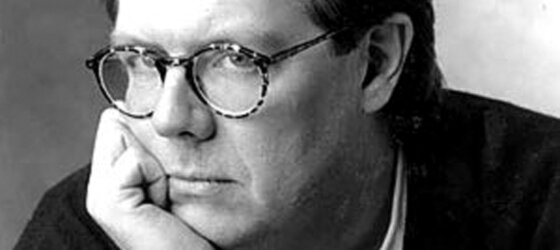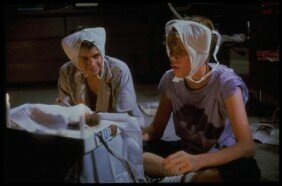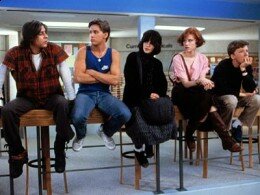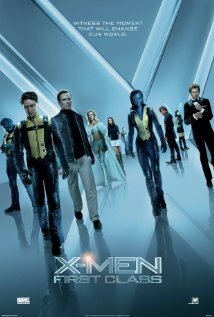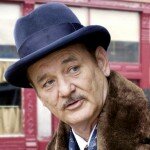This article was in the pipeline before we received the news of John Hughes’ death, so it’s with a bowed head as we bring this to you now. To know that he’s gone brings a different mood to what’s written below, as we mourn such a big loss. And it is a big loss, perhaps more than many would think. This isn’t a purely subjective opinion either, as we all know he reinvigorated the teen genre throughout the 80s – but more than that he reinvented it, bringing a sense of urgency to teenage issues that inspired many trends and filmmakers alike. Just as importantly, he created the ‘Brat Pack’. Even before his death, his name was written in the Hollywood history books as the teen guru and now we are left with a legacy of films that will truly stand against time.
|
|
To be perfectly subjective, I’ll say right off the bat that The Breakfast Club is one of my two all-time favourite films, and Ferris Bueller‘s Day Off is also high up there. But they’re favourites among many for various reasons and form only part of what Hughes wanted to get across to audiences. His mid-80s (directorial) films dealt with the trials and tribulations of being a teenager, but each looked at it differently to conclude that no-one can look at those in the same way. Ferris Bueller explores the freedom that teens desire and the consequential rebellion (sticking it to ‘the man’), while Sixteen Candles explores the forgotten child and unrequited love. The Breakfast Club mashes and deals with all of these within the theme of peer pressure, and the cliques associated with an average high school. Perhaps of all of them though, Weird Science is most realistic in its exploration – well, where the story starts anyway. The teenage boy is shown for what many of them are at some point – just as frickin’ scared about life and girls as they should be.
For all of Ferris’ cool, the Weird Science boys have none. The plot makes sure of that – geeks Gary and Wyatt decide to build their perfect woman on their computer and lo and behold, she comes to life! While this is the most farfetched story (and least revered) of these four films, Hughes uses it to exemplify that these guys are really just kids. They aren’t pretentious like Ferris or Breakfast’s Claire pretend to be – but the beauty of Hughes’ characters in each of these films is that behind the mask lies someone much different. He draws on stereotypes that reflect almost everyone’s high school experiences, but rather than portray them as trite Hughes allows you in by revealing their softer sides. You want to be them or know them. Even Claire’s ‘Princess’ act can’t make you completely hate her. The audiences’ hate is left for the members of authority, namely teachers and parents; those who are blamed for making the adolescent experience a hard one. Physically, their control in all four films are limited but as often revealed through respective characters, they create a strong mental influence. Samantha in Sixteen Candles sees her Mum forgetting her birthday as no-one caring for her, while Wyatt in Weird Science fears his parents discovering the severely damaged house. Cameron in Ferris is the extreme – fear of his parents controls his life.
What Hughes does is place these teens in seemingly normal situations; Saturday detention, house party, city streets, prom. All based in Illinois, he wants to create a sense of familiarity before he launches extraordinary occurrences in his characters’ paths. For Hollywood purposes this creates a series of entertaining films, but for Hughes it could’ve held more metaphorical significance. The idea that teens are preparing for life in the real world secretly scares the shit out of them, and we know as well as they do they’re anything but invincible. Teenagers can think that nothing ever goes their way, but somehow everything works out in the end – no matter how crazy it is on the way there. Hughes merely saw what we all recognised and put it in a way that reflects our tendency to panic. So can we take it as a simple rule of thumb; panic less and your troubles will melt away? Not in Hughes’ world. While his happy endings all seem peachy, some loose ends are never tied to keep questions unanswered. Life isn’t about knowing everything.
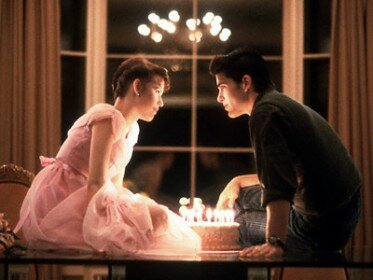 |
Hughes carried the mystery of these films to DVD where until recently he would consistently refuse to contribute commentary or features. One can presume that reflects his choice to walk away from directing (although he continued screenwriting until 2008) and shows his quiet nature. Funnily enough, he chose to step out of the Hollywood spotlight soon after he wrote that other major film of his, the one with the little blonde kid who’s left home alone. At this point though he’d already enjoyed the highest of highs picking at the teenage minds of the world – so where else could he go? Hughes was known to write his scripts quickly and move from one project to the next… no wonder he felt burned out so soon after success. These four films were all released within two years of each other, not impacting only Hughes but making stars of his ‘Brat Pack’ protégés (including Molly Ringwald, Anthony Michael Hall, Emilio Estevez, Jon Cryer and Matthew Broderick). Like the ‘Rat Pack’ decades before them, these guys held influence in Hollywood as the cool new kids, and teenagers the world over adored them. The level of ‘success’ (whatever that may be) differed for each member but they’re all part of something which has today inspired the ‘Frat Pack’ of Ben Stiller, the Wilsons et al and most recently the ‘Scat Pack’ (Judd Apatow’s crew). They also benchmark a point in time – what we should be grateful for is a slew of films that encapsulate not just a genre, but also an era. Can you imagine Breakfast’s John Bender just as cool if he was an emo or Sixteen’s Samantha not wearing her dream pink taffeta dress? And what song would’ve represented The Breakfast Club had it been set a decade earlier? Hughes used the songs of the time – while some songs now seem dated, others remain as enduring over 20 years later. Sure, the 80s were a time when they may have experimented most garishly with synthesisers and clothes, but teens here were becoming more aware of sexual diseases, terrorism wasn’t prevalent – and like any other point in time, school for the most part was a bore. These kids weren’t too worried about what was happening in the now (that was saved for college) – but they all wanted to make something of themselves. That can be seen with Ferris being the suave enigma, or Breakfast’s ensemble confession.
|
|
We’ve all been there, and for most it’s a struggle – but teenage years don’t last forever. Hughes used his opportunity to show adolescence as arguably the most stressful time of a person’s life, but reiterated that it can be fun along the way. His films are entertaining because his characters are so likable and appear so fresh and real, and his themes dealt with peer pressure (sex, drug use, bullying), first love and camaraderie. Sure, we’ve seen that all before, but when watching his films you see we still find it fascinating how teens react to situations over anyone else. They’re young, inexperienced and when the going gets tough it’s the end of the world. As a collective, Hughes’ films reflect a wide scope of personalities that diversify the results of their actions. That’s what he wanted to get across – everyone’s different, and growing up showcases that more than anything else.
 Follow the author Katina Vangopoulos on Twitter.
Follow the author Katina Vangopoulos on Twitter.
